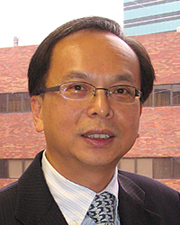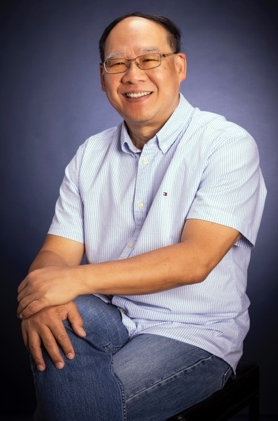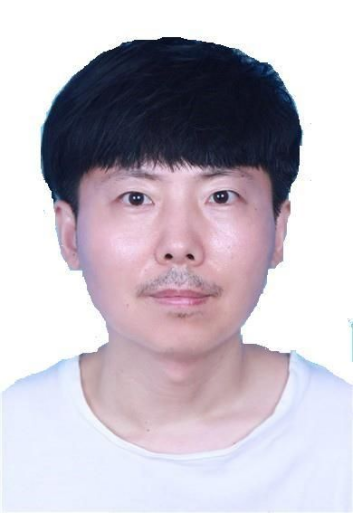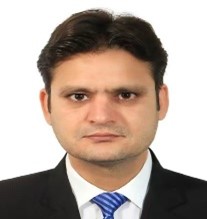Keynote Speakers

Prof. Erik Bohlin
Western University, Canada
Erik Bohlin is an expert in telecommunications policy, an inter-disciplinary topic concerned with the impact of digitalization in the economy and society. Erik holds the Ivey Chair in Telecommunication Economics, Policy and Regulation. Its purpose is to enhance Ivey’s research in the area of economic, policy, regulatory, and investment environments of Canada’s digital and telecommunication market. He is Editor-in-Chief of Telecommunications Policy, a premier journal in the field. He is on leave as Professor at Chalmers University of Technology, Sweden. His graduate degree is in Business Administration and Economics at the Stockholm School of Economics (1987) and his Ph.D. is from Chalmers University of Technology (1995). He is a Member of the Swedish Royal Academy of Engineering, and Past Chair of the International Telecommunications Society, an inter-disciplinary professional society convening conferences on the evolving digital society and policy needs. The Chair is funded by the Ivey Business School as well as by support, from Bell Canada and TELUS, to Western University.
Title: Innovative Business and Regulatory Models in Telecommunications

Prof. Dr. Andrew W. H. Ip
University of Saskatchewan, Canada
Prof. Andrew W. H. Ip received his PhD from Loughborough University (U.K.), MBA from Brunel University (U.K.), MSc in Industrial Engineering from Cranfield University (U.K.), and LLB (Hons) from the University of Wolverhampton (U.K.). Dr Ip was awarded in 2015 “Gold Medal with the Congratulations of Jury” and “Thailand Award for Best International Invention” in the 43rd International Exhibition of Geneva, and he was awarded the “Natural Science Award ” in 2013 Ministry of Education Higher Education Outstanding Scientific Research Output Awards by the Ministry of Education of Mainland China. Dr. Ip is distinguished and visiting professor of various China mainland universities, and Honorary Industrial Fellow of the University of Warwick, Warwick Manufacturing Group. He is Professor Emeritus and adjunct professor of Mechanical Engineering, University of Saskatchewan and senior research fellow of the Hong Kong Polytechnic University. He is a chartered engineer, senior member of IEEE and member of Hong Kong Institution of Engineers, and members of various professional bodies in mechanical and electrical engineering. He is Editor in Chief of the journal of Enterprise Information System (SCI index), Taylor & Francis; Founder & Editor in Chief of International Journal of Engineering Business Management (ESCI & SCOPUS index), SAGE; International journal of Software Science and Computational Intelligence, IGI Global.
Title: Big data and Space resources
Abstract: Today, the research and development of Big data, AI and space technology such as the use of satellite to monitor global climate change, forest fires, remote sensing and melting glaciers etc. enable the safety and health of our planet as well as the space environment. The issue of space resources and space economy has gained many research attention and interests, and many countries have launched their space missions to explore the deep space to meet the current needs of society and future benefits of mankind. In this talk, the speaker will discuss some of the key technologies, opportunities and challenges of big data and space resources. In particular, it will introduce some of the research works and developments contribute by the Hong Kong Polytechnic University’s research team in space missions. With the advancement and innovation of big data, IoT and AI, Space exploration will provide mankind with many opportunities and research challenges.

Prof. Timothy Teo
The Chinese University of Hong Kong, China
Timothy Teo (Ph.D.) is Professor and Associate Dean (Research) at the Faculty of Education at The Chinese University of Hong Kong (Hong Kong SAR). Having worked in Australia, Macau, New Zealand, and Singapore, Timothy was previously Professor of Education at Murdoch University and Distinguished Professor of Education and Associate Dean (Research and Personnel Development) at the University of Macau. In addition to his fulltime employment, Timothy holds and has held the position of Adjunct Professor at Murdoch University (Australia), Edith Cowan University (Australia), Honorary Chair Professor at the National Tsing Hua University (Taiwan), Distinguished Visiting Professor at the University of Johannesburg (South Africa), Honorary Professor at the University of Cape Town ((South Africa), Adjunct Senior Professor at the Universiti Tunku Abdul Rahman (Malaysia), and Adjunct Professor at the Yew Chung College of Early Childhood Education (Hong Kong). Timothy’s research interests are multi-disciplinary and include both substantive and methodological areas. These are Educational Psychology (Self-efficacy-teachers and students; Beliefs about teaching and learning; Meta-cognition), ICT in Education (Technology acceptance and adoption; e-learning), Music Education (Psychological processes of music teaching and learning), and Quantitative Methods (Psychometrics; Instrument development and validation; cross-cultural measurement; issues in survey development and administration; structural equation modeling; multilevel modeling; latent growth modeling). Timothy is Editor-in-Chief of The Asia-Pacific Education Researcher (TAPER) (SSCI Q1) and a member of over 10 journal editorial boards. A highly published and cited scholar, Timothy has edited three books and written many book chapters and conference papers, and published over 220 journal articles, with over 170 in highly ranked SSCI journals. His Google Scholar citations are over 24,000 with an H-index of 80. In 2024, Prof Timothy Teo was ranked #53 out of the top 100 Education scholars in the world by a report from Stanford University (USA). From a recent release of the 2024 Edition of Ranking of Best Scientists in the field of Social Sciences and Humanities (Research.com), Professor Timothy Teo is ranked #886 in the world and #9 in China. In 2025, Professor Teo is currently listed among the top 0.05% scholars in the world. (ScholarGPS: https://scholargps.com/scholars)
Title: Applications of Data Science in Educational Research
Abstract:In this talk, I will share on how data science has been engaged to facilitate research in education. In particular, I will discuss the role data science plays as an enabler for educational researchers, the benefits and affordances data science gives to effective research management in education, and the challenges and limitations faced by educational researchers when engaging and interacting with data science.

Prof. Dingju Zhu
South China Normal University, China
Dingju Zhu is a distinguished professor and doctoral supervisor at South China Normal University (SCNU), where he serves as Director of the Research Center for AI Governance and Educational Engineering Technology at School of Artificial Intelligence, Dean of the SCNU-Guangdong AI & Robotics Education Industry College. He earned his Ph.D. from the University of Chinese Academy of Sciences, completed postdoctoral research at Peking University, and was a visiting scholar at Texas State University, USA. He has been honored as Leading Talent in Technological Innovation and Outstanding Inventor in Guangdong, SCNU Distinguished Teaching Professor, Outstanding Researcher. His main research interests include AI, big data.
Title: AI and Big Data-Driven Business Innovation in China

Dr. Muhammad Ibrar
ILMA University, Pakistan
Dr. Muhammad Ibrar is an accomplished academic and researcher specializing in Public Administration, Sociology, Education, and Public Policy Management. Currently serving as a faculty member at Shenyang Normal University, China, he is also an Assistant Professor (on leave) at ILMA University, Pakistan. With over 40 publications in prestigious journals and conference proceedings, his work spans diverse areas such as cybersecurity, the China-Pakistan Economic Corridor (CPEC), and online learning. Dr. Ibrar holds a Ph.D. in Public Administration from Harbin Institute of Technology, China. His professional experience includes roles at the University of Swabi, Government Postgraduate College Dargai Malakand, and Allama Iqbal Open University. Fluent in multiple languages, including English, Urdu, and basic Chinese, Dr. Ibrar is dedicated to advancing knowledge through research, teaching, and international collaboration. His contributions continue to shape academic discourse and policy development in his fields of expertise.
Title: Impacts of China Pakistan Economic Corridor (CPEC): From Infrastructure to Well-being“Transforming Healthcare with Data Science and Business Analytics”

Dr. Peiting Cai
Guangdong University of Science and Technology, China
Peiting Cai is a lecturer in the Faculty of Management at Guangdong University of Science and Technology. She is a PhD candidate in South China University of Technology now, and graduated from Hong Kong Polytechnic University and University of Warwick (UK) in 2016. She has also studied at Turku University of Applied Sciences in Finland and Singapore Institute of Management. Based on her international academic background, she has worked as an international R&D project manager in an IC company in Hong Kong, a trade ambassador in Hong Kong Trade Development Council and a consultant in Investment Promotion Bureau of Longhua New District in Shenzhen. Her main research interests include AI economics, digital transformation, and digital marketing.
Title: The Dilemma: Performance Shortfalls and AI Innovation
Abstract: Amid escalating business uncertainties and intensifying competition in AI technology, companies facing performance shortfalls often grapple with a dilemma: whether to invest more in AI innovation for breakthroughs or adopt conservative strategies to mitigate risks. While existing literature primarily focuses on the impact of performance shortfalls on general innovation, there remains a lack of in-depth analysis on the unique challenges of AI innovation. This study, based on data from China's A-share listed companies (2008–2022), reveals that performance shortfalls significantly inhibit AI innovation. Mechanism analysis demonstrates that, according to Attention-based View theory, performance shortfalls divert managerial focus away from AI innovation. To counteract this negative effect, Resource Orchestration theory suggests that enterprises can integrate external resources, optimize internal governance, and adopt collaborative development or technology-accumulation strategies. Over the long term, sustained AI innovation positively correlate with profitability and return on investment. Thus, companies in performance difficulty should maintain strategic patience in AI innovation. These findings provide a theoretical foundation for AI innovation decisions under performance pressures.

Dr. Maximilian Arras
RWTH Aachen University, Germany
Maximilian Arras is a PhD candidate at Tsinghua-BP Clean Energy Research and Education Center, specializing in energy system analysis, modeling, and strategy. His dissertation focuses on the techno-economic analysis of hydrogen economies. Recently, he was awarded with the prestigious National Natural Science Foundation of China (NSFC) grant for excellent international PhD students. He also led an international joint research project on electro-thermal energy storage systems for sector coupling and collaborated with an automotive supplier on business model diversification in the field of 'Energy meets Mobility in China'. Prior to joining Tsinghua University, Maximilian gained three years of consulting experience in the automotive industry and energy sector, working with clients such as Mercedes-Benz and Rolls-Royce Motor Cars. He holds an MSc in Energy Engineering from Tsinghua University, as well as an MSc and BSc in Industrial Engineering from RWTH Aachen University in Germany.
Title: Global Hydrogen Atlas: A High-Resolution Geospatial Methodology for Levelized Cost Optimization of Hydrogen Microgrids
